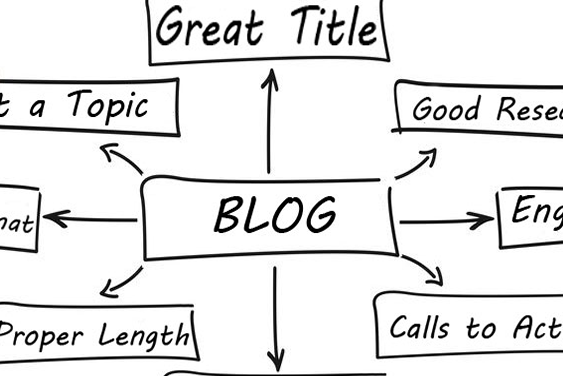Choosing the right blogging platform plays a huge role in digital marketing success, especially when it comes to search engine optimization (SEO). In this article, we’ll talk about some of the best blogging platforms for SEO, such as WordPress, Wix, Squarespace, and Medium. We’ll explain their unique features and how they compare in terms of SEO capabilities.
Factors Affecting SEO on Blogging Platforms
There are several factors that influence how a blogging platform impacts SEO. These include:
Site Speed and Performance: The loading speed of your website has a dramatic impact on user experience and search engine rankings. Faster sites tend to rank higher in search results.
Mobile Optimization: More and more users are accessing content on mobile devices these days, so search engines prioritize mobile-friendly sites. A responsive design that adjusts to different screen sizes is important.
Ease of Content Management and Customization: Platforms that make managing and customizing content easy give users greater control over their SEO efforts. This includes optimizing elements like meta descriptions, title tags, and URL structures.
Availability of SEO Plugins and Tools: SEO plugins give a site improved functionality that makes it more visible. These tools can automate the optimization process, so it becomes easier to manage.
WordPress: The SEO Powerhouse
Many digital marketing experts regard WordPress as the best blogging platform for SEO. It has an extensive range of features and flexibility that make it the top choice for bloggers and businesses alike.
SEO Features: WordPress is highly customizable, allowing users to tailor every aspect of their site to optimize their SEO performance. From setting up custom permalinks to optimizing images and meta tags, WordPress offers tons of options to enhance SEO.
Plugins Availability: The platform has a vast library of plugins, some of the most popular being Yoast SEO and All in One SEO Pack. These plugins help users with the optimization process, making suggestions to improve content readability and how keywords are used.
Community Support: WordPress has a large community of developers and users that help it continue to grow. This support network plays a huge role in troubleshooting and staying on top of the latest SEO practices.
Wix: A User-Friendly Alternative
Wix is known for its ease of use, so it’s a popular choice for beginners who want a simple, drag-and-drop website builder.
Ease of Use: Wix’s user-friendly interface allows users to create visually appealing websites without needing to know any coding. This is great for those who prioritize design and simplicity.
SEO Features: Wix has improved its SEO capabilities over the years. It offers features like customizable URLs, meta tags, and image optimization these days. The Wix SEO Wiz tool provides a personalized SEO plan that helps users optimize their sites effectively.
Comparison with WordPress: While Wix offers a more straightforward setup, it lacks many of the more advanced controls, plugins, and SEO functionalities that WordPress users enjoy.
Squarespace: Design-Oriented Platform with SEO Tools
Squarespace is known for its sleek, design-centric templates. It appeals to users who want a visually stunning website without needing tons of customization.
Design-First Approach: Squarespace provides high-quality templates that are optimized for both desktop and mobile devices. This makes sure site visitors get a consistent experience across different platforms.
SEO Capabilities: Squarespace offers all the essential SEO features, like customizable meta titles and descriptions, clean URL structures, and image alt tags. These tools are built into the platform, so it’s easy for users to optimize their sites.
Limitations: While Squarespace provides basic SEO tools, it doesn’t offer the same level of customization and plugin support as WordPress. Users who require advanced SEO features might find themselves limited by Squarespace.
Medium: Content-First Platform with SEO Limitations
Medium is a unique platform that focuses on content sharing and community engagement. It’s popular among writers and bloggers who want to reach a wider audience.
Content Sharing Model: Medium’s platform is designed to promote content discovery. Users can follow topics and writers, so their content gets seen by a broader audience.
SEO Limitations: Unlike self-hosted platforms, Medium offers limited control over SEO settings. Users can’t customize URLs, meta descriptions, or use SEO plugins, which can negatively impact their SEO efforts.
Audience Reach: Despite these limitations, Medium’s built-in audience can be a big help for new bloggers to gain visibility quickly. However, for those serious about SEO, a self-hosted platform like WordPress might be a better option.
Choosing the Best Blogging Platform for SEO
Of course, choosing the best blogging platform for SEO depends on your specific needs and goals. WordPress is still the leader with its extensive customization options and robust plugin library. Wix and Squarespace are excellent choices for users that want to focus on design and ease of use, while Medium offers a built-in audience but limits SEO control. Ultimately, the right platform will depend on the balance between user-friendliness, customization, and SEO capabilities.
By taking these factors into account and leveraging the strengths of each platform, you can make an informed decision that aligns with your objectives for blogging and SEO.





